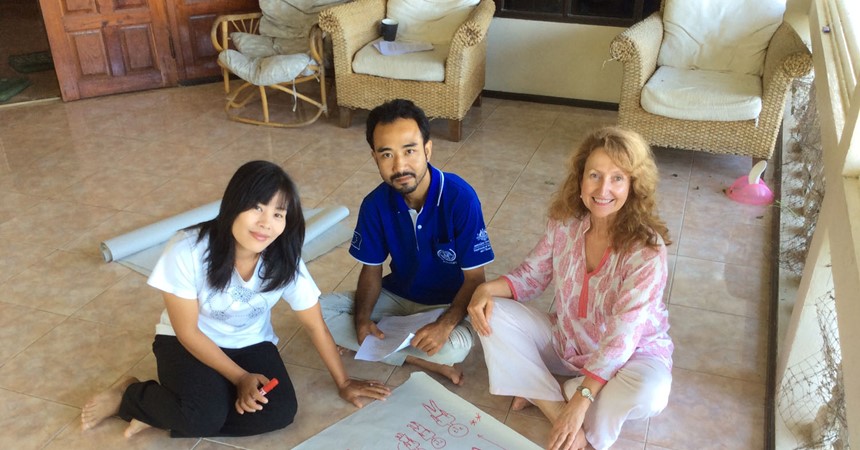As I visited more orphanages, I became increasingly concerned about the children’s wellbeing and development and began to ask, ‘What can be done?’
To answer that question I returned to Australia eight years ago and commenced work in CatholicCare’s Out of Home Care Program to learn about the framework and best practices required to support children in vulnerable circumstances. Further study in London on de-institutionalisation of orphanages with JK Rowling’s foundation, LUMOS, and links through international conferences provided a foundation to return to the field to raise awareness and provide technical support to agencies and government departments operating orphanages. CatholicCare has allowed me to take leave without pay to assist programs in India, Cambodia, Sri Lanka and on the Thai/Burma border.
Many people think that children are in institutions because they are orphans but this is not the reality. Poverty is one of the key drivers of institutionalisation as parents are unable to provide for their children. Other factors include disability, ethnicity, child abuse and neglect. Orphanage-based care continues to grow in countries impacted by severe poverty, conflict, displacement and AIDS.
The greatest shortcoming of institutional care is that young children do not experience the continuity of care needed to form a secure, lasting attachment with a caregiver.
Children in institutional care experience developmental problems as they grow. It is estimated that for every three months a young child resides in an institution, s/he loses one month of development. When visiting an orphanage the young children often want to touch you or hold your hand. While this can appear to be an expression of affection it is likely that it’s actually a result of a significant attachment problem. It has been shown that as these children grow they have difficulty forming and maintaining relationships and have difficulty re-integrating into society when leaving the institution. Russian research shows that one in three children who leave residential care becomes homeless, one in five gains a criminal record and up to one in 10 commits suicide. Children deserve better than this.
Family-based care is recognised as giving children the best opportunities. While not all families are safe and capable of providing care for their children and not all orphanages are bad, a safe, loving family environment is best for children’s development and wellbeing.
This has been a wonderful, heartwarming and at times, heartbreaking, journey for me as I continue to work with staff from governments, orphanages and local agencies in developing understanding of the importance of family-based care and better family-based alternatives including family preservation, family reunification and family-based alternative care such as foster care. The next step in my journey begins soon when I return to the Thai/Burma border for six months!























































































